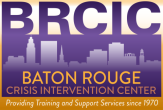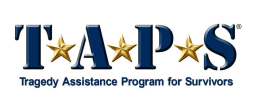| |
|
Available Trainings at the NSTC |
Active Postvention Training
Presented by Frank Campbell, Ph.D., LCSW, CT
Day One In the morning, we will begin broadly and discuss the importance of having an Active Postvention Model in
your community to deal with Traumatic Deaths. Dr. Campbell will point out the consequences to first responders and individuals who encounter a
traumatic death while psychologically vulnerable. As the day goes on, Dr. Campbell reminds the participants
that the most predictable traumatic death each community will experience is suicide. Video and power point, metaphor and stories are used to convey the content including impact
on children and the importance of getting help sooner rather than later. The key to that happening has universally been having Local Outreach to Suicide Survivor Teams (LOSS Teams).
Day Two Dr. Campbell’s one-day LOSS Team training. This concludes with discussions on next steps to make that happen in their own communities.
The cost of this limited size (no more than 20 participants) opportunity is $500 per person for both days and this includes lunch and snacks both days.
Your expenses will be: travel to and from the training site, lodging and meals away from the workshops.
|
 |
Assessing & Managing Suicide Risk (AMSR)
Presented by Daniel DeBrule, Ph.D.
A 6.5 hour CE workshop in which participants receive a manual and discuss, demonstrate, and
practice evidence based practices. This workshop is coordinated by the Suicide Prevention Resource Center & Educational Development Center in Washington, DC.
|
 |
Creating Opportunities for Healing in the Midst of Suicide: A Training for Clergy, Lay Faith Leaders, and Funeral Home Directors
Presented by Melinda Moore, Ph.D.
Clergy and faith leaders are uniquely positioned to provide hope, promote resiliency, and to increase help-seeking behaviors among its members.
This workshop will discuss best practices for faith communities to create suicide prevention strategies and messages for its congregants. It will introduce strategies for
clergy and faith leaders handling suicidal individuals in their congregation, as well as when the worst has happened and a member of the community either attempts or
dies by suicide. It will address how the funeral and the aftermath of the death is managed and what to expect in terms of and the aftercare for those who were most impacted by the death.
The workshop will also provide recommendations on ways that faith leaders and communities fit into the Suicide Prevention Resource Center (SPRC) Comprehensive Approach to Suicide Prevention,
specifically in the strategies of connectedness, life skills and resilience, and increasing help-seeking.
|
 |
Developing a Successful Survivors of Suicide Program in Your Community: Using Volunteers to Make it Happen
Presented by Sandra McNally, MA, LISAC
In this one-day training, participants will learn how to develop and facilitate a successful Survivors of Suicide Loss program within their own community, using volunteers as the
primary resource. The trainer will share her expertise in running such a program at EMPACT-Suicide Prevention Center in Arizona, discussing a program
which has been successful in the community for the past 31 years and has been used as a model program internationally.
Topics that will be covered include volunteer recruitment, volunteer training, fundraising, and program development and sustainability.
|
 |
Development and Implementation of a School-based Suicide Prevention Program
Presented by Sue Eastgard
This training will include programming and resources for administrators, faculty, parents, and students. Participation in training would result in an
individualized plan for each school that addresses suicide prevention, intervention, re-entry and postvention.
|
 |
Enhancing Post-traumatic Growth in Loss Survivors
Presented by Daniel DeBrule, Ph.D.
|
 |
Grief after Suicide: Understanding the Consequences and Caring for the Survivors
Presented by Melinda Moore, Ph.D.
People bereaved by suicide constitute a remarkable proportion of the population with an increased risk of experiencing complicated courses of grief.
This hidden cohort of suicide-exposed people may be, themselves, at risk for psychopathology and suicide. Exposure to suicide may pose independent risk for suicidal
thoughts and behaviors and could, in turn, contribute to the family transmission of suicidal behavior. There is a significant gap between the support needs of
people bereaved by suicide and the provision and quality of professional support services. General practitioners and mental health professionals, in particular,
should screen patients who have lost a loved one to suicide for suicidal ideation and behavior.
High-risk patients should then be referred to those who are trained to provide suicide-focused treatment.
This training will address the effects of suicide exposure and bereavement on mental health, suicide risk among the bereaved,
therapeutic interventions for people bereaved by suicide and the hope for Posttraumatic Growth.
|
 |
Helping Survivors on their Grief Journey
Presented by Barb Smith
Barb will discuss “why suicide” and teach simple yet effective words and tools to help support survivors of suicide loss on their grief journey.
Barb brings 30 years experience in the field of suicide prevention and aftercare and is a survivor of her brother and sister-in-law’s suicide.
She uses her lived experience, case stories, evidence-based content and a bit of humor, to enable participants
to walk away feeling more confident and comfortable working with the bereaved in the aftermath of a suicide.
|
 |
The History and Modern Innovations in the Field of Postvention/Suicide Loss
Presented by Daniel DeBrule, Ph.D.
|
 |
No Time to Say Goodbye: Survival and Resilience After the Suicide of a Loved One
Presented by Carla Fine, M.S.
Grieving a loved one’s death by suicide is a unique experience that often feels isolating and confusing to those of us who are left behind.
This workshop will explore the different stages following the suicide of a loved one and offer practical
advice for coping with bereavement and developing resilience after devastating loss.
|
 |
Suicide Prevention 101 for Assisting Veterans
Presented by Daniel DeBrule, Ph.D.
Training for community and therapists – free to groups in the New Orleans & Baton Rouge areas.
|
 |
Understanding and Supporting Youth At-risk for Suicide and Bereaved by Suicide: What All Schools Need to Know about Suicide Prevention and Postvention
Presented by Sandra McNally, MA, LISAC
In this one-day training, participants will learn how to develop a comprehensive suicide prevention and postvention program for youth within a school or community setting.
Participants will increase their knowledge about best-practice suicide
prevention strategies for adolescents, as well as bereavement support services to offer youth after a suicide has occurred in the community.
|
 |
What Caregivers and Mental Health Professionals Need to Know to Better Meet the Bereavement Needs for those Experiencing Traumatic Losses
Presented by Bill Feigelman, Ph.D.
This workshop will delve into the unique needs for compassionate care and support among those bereaved by suicide or drug overdose deaths.
We will examine the stigma surrounding these deaths, healing trajectories, use of grief counselors, support groups, bibliotherapy and other aids,
and post-traumatic growth as the bereaved seek to recover and establish ‘new normals’ for themselves.
|
 |
When Health Professionals Die by Suicide: Coming Together in Healing
Presented by Michael F. Myers, M.D.
Given that health professionals are dedicated to fighting disease and protecting life, it is always shocking when a physician, nurse, psychologist, social worker or other caregiver dies by suicide.
This workshop is intended to bring colleagues to a safe place when they have lost one of their own.
Attendees will come to understand the many emotions (many of them raw and frightening) that accompany suicide and gain a sense of comfort in sharing and connecting with each other.
|
 |
Writing a Path to Healing: Coping With the Death of a Loved One
Presented by Carla Fine, M.S.
A hands-on exploration of the power of the written word as a tool to addressing loss and grief. Participants will discover how sharing their feelings through writing can lead to a greater clarity and understanding of the chaos and confusion that the death of a loved one
leaves in its wake. Five-minute writing exercises will be conducted and shared during the workshop.
|
 |
Writing Interventions for Lived Experience and Suicide Loss
Presented by Daniel DeBrule, Ph.D.
|
 |
|
|
|
| |
|
 |
| Copyright © 2024 National Suicidology Training Center, a program of the Baton Rouge Crisis Intervention Center |
 |
|







